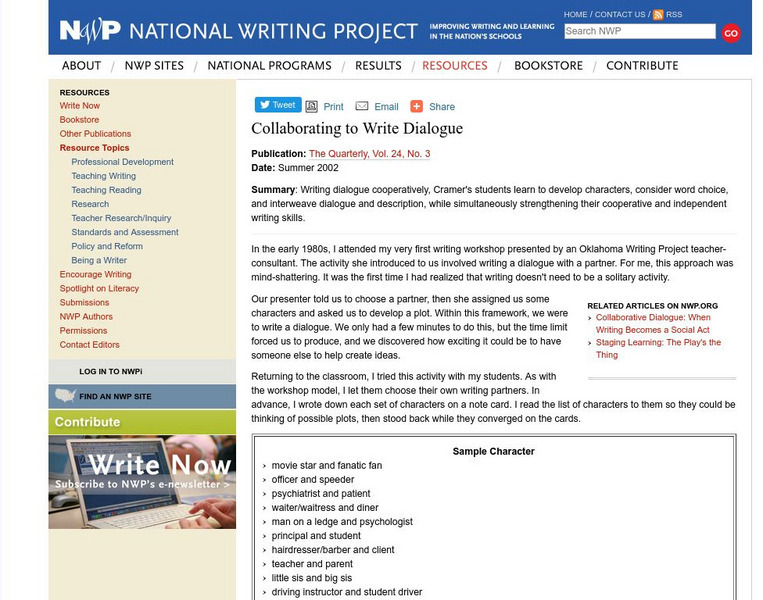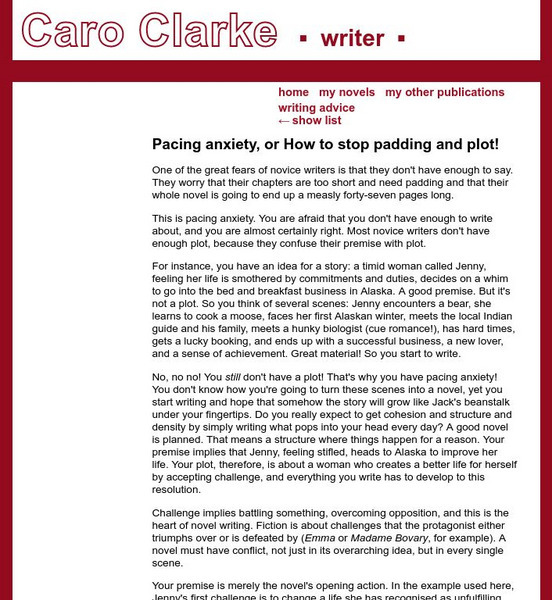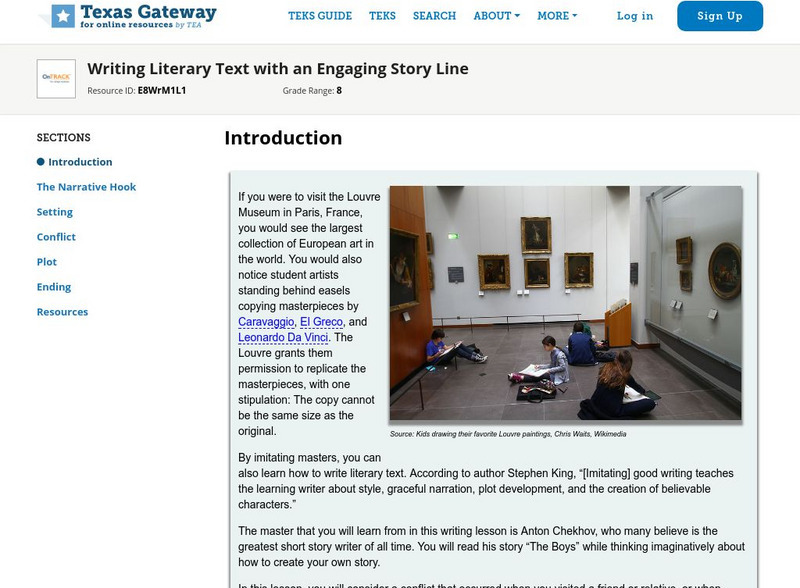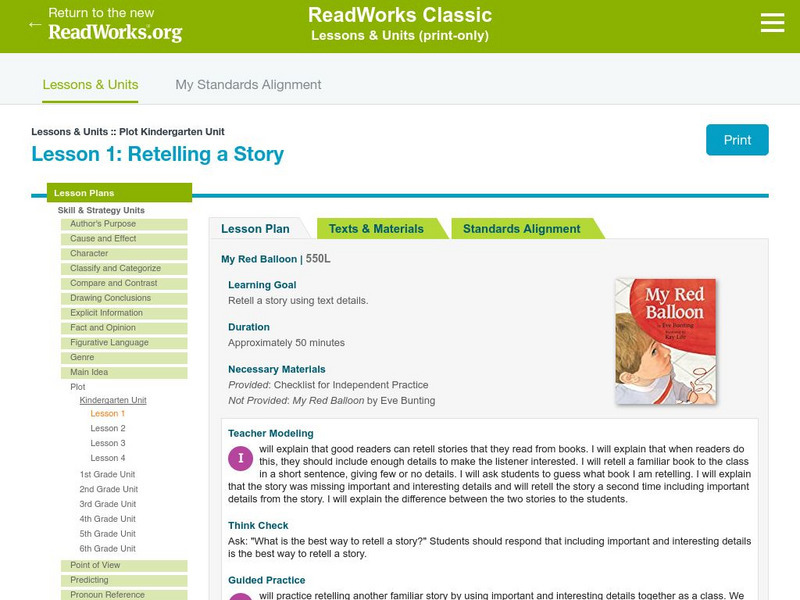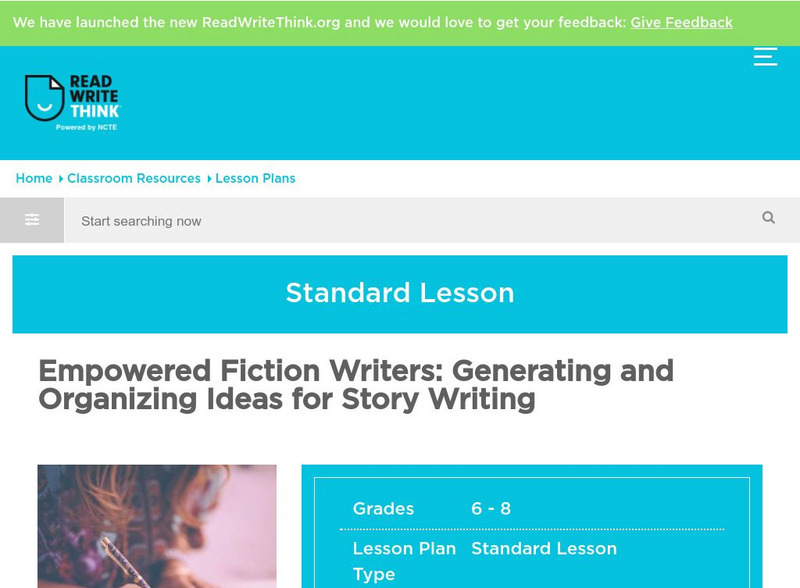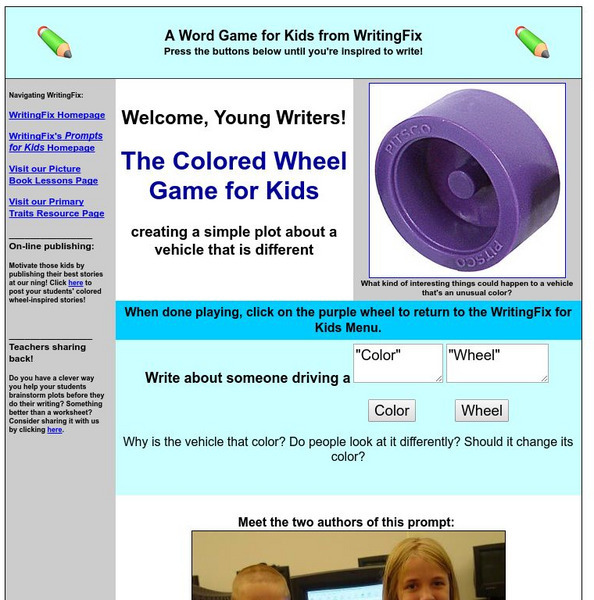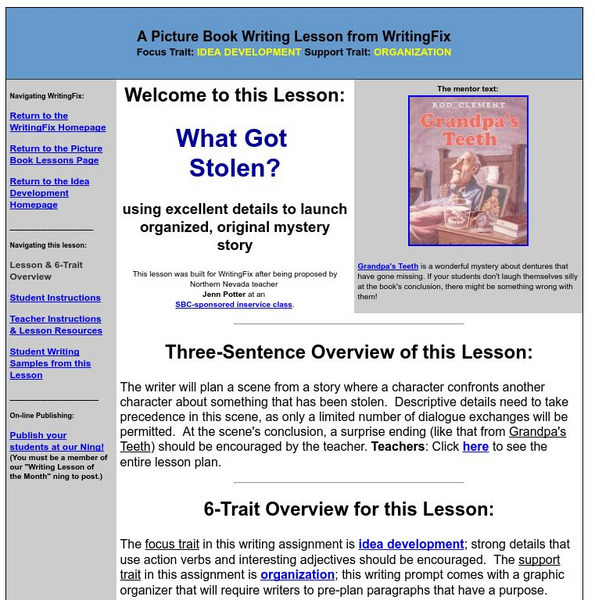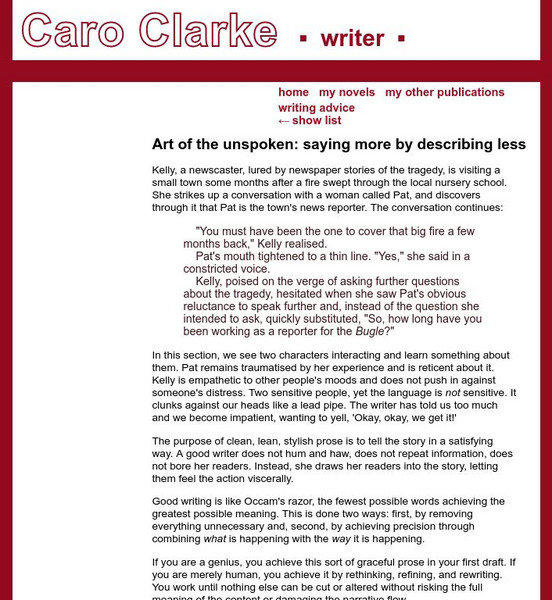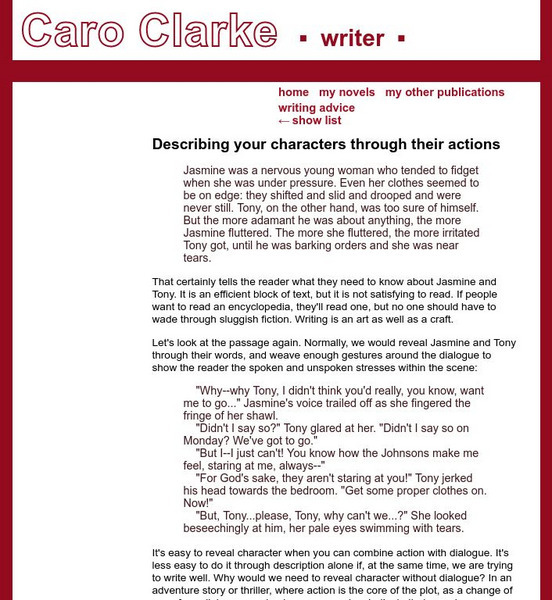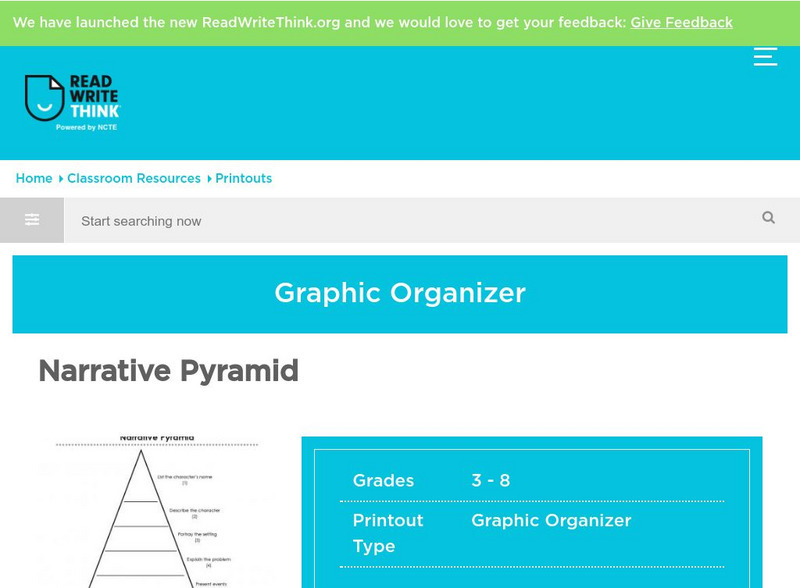Hi, what do you want to do?
ReadWriteThink
Read Write Think: Using Picture Books to Teach Plot Development and Confict Res.
Students read picture books to explore the concepts of plot development and conflict resolution. They first learn about the connections between reading and writing, and then revise their own writing. CCSS.ELA-Literacy.CCRA.R.4
Texas Education Agency
Texas Gateway:writing an Engaging Story With Literary Strategies to Enhance Plot
A learning module that teaches students about writing a short story with a strong plot in seven mini-lessons: Introduction, Choose the Point of View, Figure Out What to Say, Suspend Readers in Midair, Write about a Central Theme, Read A...
Writing Fix
Writing Fix: Showing Plots & Conflicts
In this lesson, recommendations from Ralph Fletcher's book called Live Writing will be used as a teacher reference. Students will write introductions to three different stories in their writer's notebooks, but each type of conflict must...
ReadWriteThink
Read Write Think: Comics in the Classroom: Introduction to Narrative Structure
Contains plans for four lessons that teach learners about narrative plot structures by using "The Three Little Pigs" fairy tale or a similar story. In addition to objectives and standards, this instructional plan contains links to sites...
ReadWriteThink
Read Write Think: Plot Structure: A Literary Elements Mini Lesson
Contains plans for two lessons that ask students to apply Freytag's Pyramid (also known as Freytag's Triangle) to pieces of writing, oral storytelling, and television shows. In addition to objectives and standards, this instructional...
Writing Fix
Writing Fix: Short Adventure Stories
Inspired by the interactive plot ideas here, writers will create an original three-paragraph adventure story. First, each writer will create an original adventurer. Next, each writer will place the adventurer in a brief, organized...
Other
National Writing Project: Collaborating to Write Dialogue
In this lesson, writing partners work together to develop a plot and characters. The lesson emphasizes the use of dialogue to develop the characters and plot of the story.
PBS
Pbs Teachers: Story Writing With Arthur
This series of 12 downloadable activities teach students some basics of story writing, using books or videos from the PBS "Arthur" series as a springboard. Activities include creating story maps, asking questions about characters and...
Caro Clarke
Caro Clarke: Pacing Anxiety, or How to Stop Padding and Plot!
This is the seventh installment of a series giving advice to the author who is new to writing novels. This article focuses on how to take your characters and use them and their conflicts to develop the plot of your story. W.9-10.3b...
Sophia Learning
Sophia: Characters and Plot
This lesson introduces the connection between characters and plot in fiction writing.
ReadWriteThink
Read Write Think: Writing Alternative Plots for Robert O'brien's Z for Zachariah
Lesson in which students are required to write an alternative plot to O'Brien's science fiction novel. Includes an interactive graphic organizer, handouts, and a rubric.
Writing Fix
Writing Fix: Rolling With the Animals
After reading Duck on a Bike by David Shannon, the writer will plan an original story where an animal (other than a duck) finds itself in a human mode of transportation (other than a bike). Three other animals will react to the unusual...
Texas Education Agency
Texas Gateway: Writing Literary Text With an Engaging Story Line
A learning module that teaches students how to write an engaging literary text in six lessons: Introduction, The Narrative Hook, Setting, Conflict, Plot, and Ending.
Texas Education Agency
Texas Gateway: Writing a Short Story With Well Developed Conflict and Resolution
A learning module that teaches students about writing a short story in six mini-lessons: Introduction, Understanding the Essence, Getting an Idea, Structuring Plot, Building Conflict, and Outlining Your Own Story.
Read Works
Read Works: Plot Kindergarten Unit: Retelling a Story
[Free Registration/Login Required] Teach retelling a story using plot elements through explanation, guided practice, and independent practice as learners develop the skill. The text, My Red Balloon by Eve Bunting, must be provided by the...
Writing Fix
Writing Fix: A Chapter Book Writing Lesson: Creating a Parallel World
Inspired by the opening events in The Subtle Knife by Philip Pullman, young scholars are asked to create an original parallel world that is similar to ours but different in certain ways. They will focus on the similarities and...
ReadWriteThink
Read Write Think: Empowered Fiction Writers: Generating and Organizing Ideas
Do your students' minds go blank when they confront a blank piece of paper? Speedwriting can help them get started with writing as well as come up with topics to write about. They can then incorporate their key ideas and phrases into a...
Writing Fix
Writing Fix: A Word Game for Kids: The Colored Wheels Game
What kind of interesting things could happen to a vehicle that's an unusual color? In this student-created lesson, young writers click the color and the wheel button until they find a colored vehicle they want to write about. Then they...
Writing Fix
Writing Fix: What Got Stolen?
After reading Grandpa's Teeth by Rod Clement, the writer will plan a scene from a story where a character confronts another character about something that has been stolen. Descriptive details need to take precedence in this scene, as...
Caro Clarke
The Art of the Unspoken: Saying More by Describing Less
This is the thirteenth article in a series that was developed to help the new novel author. This article focuses on how good descriptions aren't necessarily connected with a lot of words, good descriptions are clean and to the point.
Other
Essays on the Craft of Dramatic Writing
This site, by the author of a workbook on the craft of writing, is filled with essays about many elements of dramatic writing, from the principles of storytelling, to plot development, to character development. There are also numerous...
Caro Clarke
Describing Your Characters Through Their Actions
This is the tenth in a series of articles designed to help the new novel author. This article focuses on how to develop characters through their actions instead of simply relying on dialogue and description of thoughts. W.11-12.3d...
Other
Kim's Korner: Graphic Organizers for Writing and Reading
What are graphic organizers for reading and writing? Use this site to learn more about these learning tools.
ReadWriteThink
Read Write Think: Narrative Pyramid
A printable narrative pyramid where students can record information about a story including the character, setting, problem, main events, and solution. Directions on how to use this type of graphic organize as well as lists of teaching...











